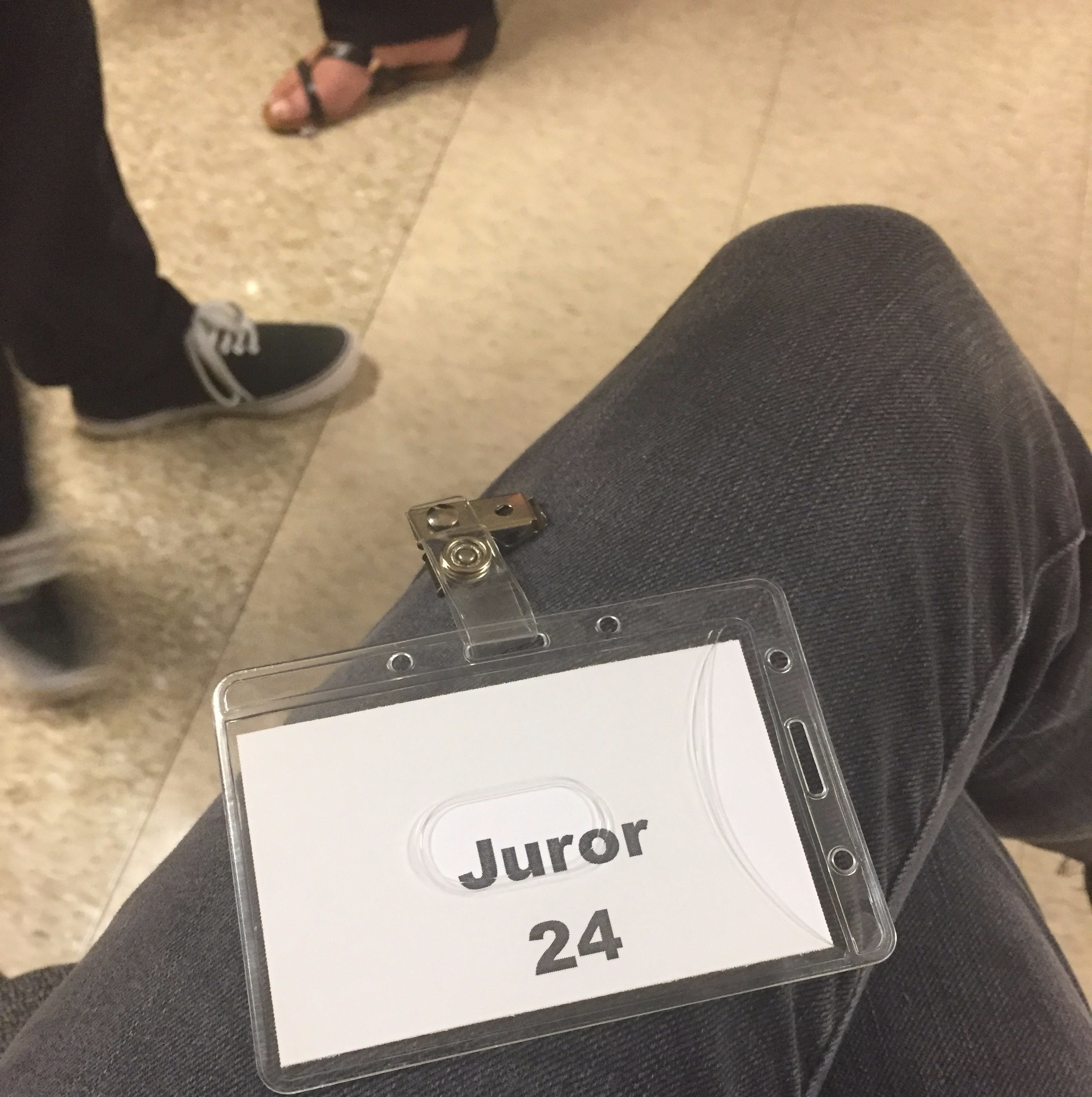Good news/bad news: reporting for jury duty
/ I was so ready. I had reading material (one print book, one Kindle) my laptop (so I could do some writing) and a knitting project (one unimpressive-looking scarf because I am not a good knitter since I can't follow a pattern and can only knit flat things).
I was so ready. I had reading material (one print book, one Kindle) my laptop (so I could do some writing) and a knitting project (one unimpressive-looking scarf because I am not a good knitter since I can't follow a pattern and can only knit flat things).
I was so ready for jury duty.
When I told people I had been called for jury duty they made sad faces and sympathetic sounds. But I was excited about it. I wanted to serve justice. To participate in my community. To listen to the evidence and contribute to a compassionate but fair outcome.
Yes, it is entirely possible that I have watched too many courtroom dramas.
Regardless, I went down to the courthouse and sat around a large conference table with twenty of my fellow jurors. The room was quiet at first, people were nervous and awkward, but slowly we started chatting. I talked to a woman who was the assistant principal of a school. Someone else was a nurse. Someone else had been called to a jury four times in the past ten years.
After about an hour, we were summoned to the courtroom. It was beautiful, in a cold and stuffy way. There were columns, large paintings of old white men, and the thermostat was set to about 60 degrees. The bailiff announced that there were twenty-two jurors present because apparently counting us was part of his job. The judge introduced herself, thanked us for coming and said that we are an important part of the system. And then she said:
"I have good news and bad news, and it's all the same news."
She said that this was a criminal trial but the defendant didn't show up. And depending on how we felt about serving today, we might take the news either way. But regardless, we were free to go. We all looked at each other, surprised by the anti-climactic turn the day had taken. We gathered our books and knitting and laptops. And we left.
Yoga philosophy talks about Tat and Sat. What is true and what is real.
What was Tat and Sat was that the defendant didn't show up and there would be no trial today. But everyone translated that truth differently:
- One juror: thrilled that she got her day all to herself
- Another juror: sad that now he had to go to work
- The defendant: probably happy he was not in court, but likely not a great choice in the long-run
- Me: disappointed that I could not be part of the jury and also kind of sad that I wouldn't have all that "boring" time in which to finish the amazing book I'm reading
It just reminded me that we tend to think of things being inherently good or bad. We weave a complicated story about the implications of every little thing. We cling so tightly to our own perspective, it seems like it's factual and unalterable. But while we might not be able to change the circumstances of much of life, we can decide to take a different perspective.
I've seen people change their perspectives about things that seem so clear - a cancer diagnosis shifts from a nightmare to an awakening. Losing a job becomes an opportunity for a reinvention. A failure teaches far more than any success ever could.
I left the courthouse and walked through my beautiful downtown of Charlottesville on a stunning fall day. We've been through some tough times in my town. But we're coming through it, determined to be better because of it. I drank my tea and felt newly-fallen leaves crunch under my feet and I felt immense gratitude for all of it. The complicated mess of life with its unexpected turns. It's all about the ability to exercise equanimity in the face of endless uncertainty.
And together we can help each other through the good news, the bad news, all the news.
——–
You can leave a comment here, or join us on Facebook, Instagram, or Twitter!
